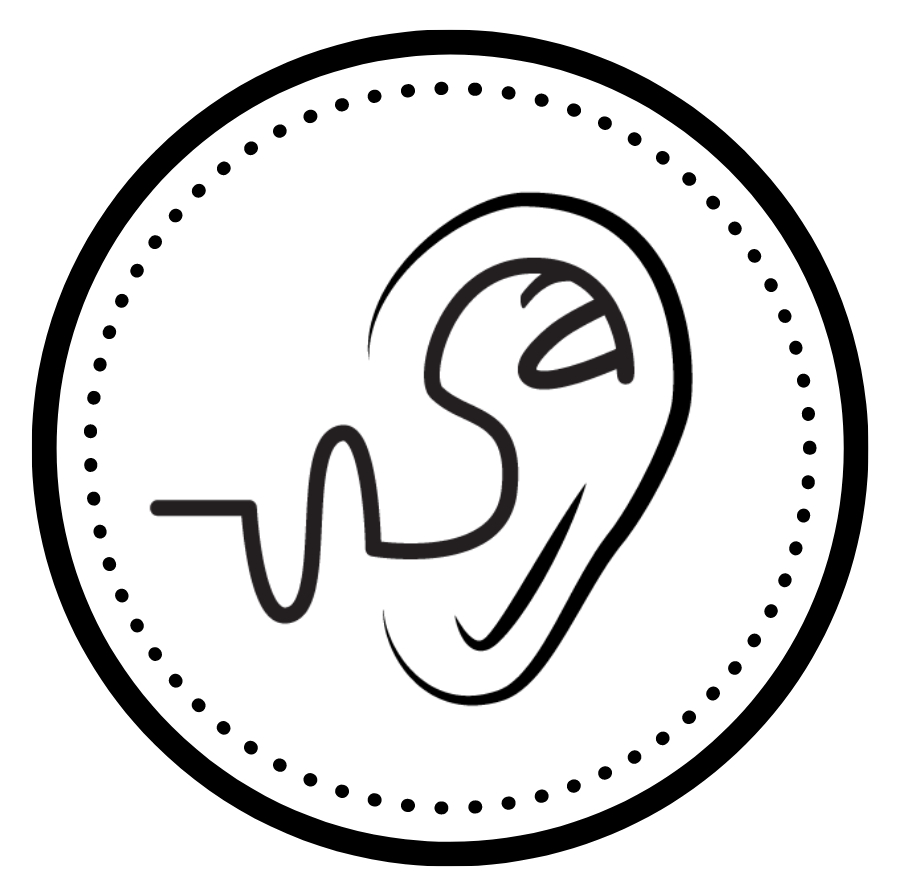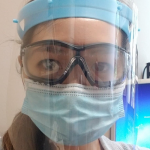You’re rolling around in bed. Maybe you’ve hit that ‘snooze’ button a couple times already because it can’t possibly be time to wake up yet. Beep beep beep. Alright, alright – you’re finally up and you’re already thinking about the delicious, freshly brewed cup of coffee waiting to pump caffeine into your bloodstream.
But wait a second… your ear feels oddly plugged.
You might be experiencing sudden hearing loss, or sudden deafness. You shake your head up and down, side-to-side to try to get rid of the congestion or fullness sensation. No luck. You might notice a ringing or buzzing (also known as tinnitus) sound in your ear that wasn’t there last night. Or, you stretch out your legs and as soon as you try to stand up, you feel a room spinning, whirling sensation and before you know it, you’re on the floor looking sideways. WHOA.
Sometimes these symptoms can present all at once and prompt you to call the doctor right away.
Sudden hearing loss is not normal. Perhaps you notice that your hearing recovers spontaneously in a matter of hours or days and think, “Nah, I don’t need to do anything about this”, but…
Listen up! You need to do something about your sudden hearing loss.
Think about this: if you woke up with very blurry or no vision in one eye, you would be concerned right? Would you continue to walk around all day being blind in one eye thinking that it’s okay to not be able to see well? Probably not.
Waking up with sudden vision loss is not normal, just like waking up with sudden hearing loss is not normal. Losing hearing in one ear is a sign that something is wrong with your auditory system. In either case, your brain cells should be fired up screaming, “This is an emergency! Call the doctor now!”
Seeking immediate medical attention will result in a higher chance of hearing recovery.
The longer you wait to do something about your sudden hearing loss, the less likely your hearing system will be able to respond and improve with the available treatment options. Sudden hearing loss is a medical emergency and you should contact a doctor that recognizes it as such.
Contact your primary care doctor, audiologist, or an ear, nose and throat physician (also known as an ENT/otolaryngologist) to guide you through the steps to possible hearing recovery.
So, what exactly causes a sudden hearing loss?
Sudden hearing loss usually affects one ear and is considered to be a rare occurrence. It is extremely rare for sudden hearing loss to affect both ears. In any case, causes can be linked to viral, autoimmune, or genetic reasons:
- Contracting a virus can attack your hearing and/or vestibular (i.e. balance-related) nerves
- Your immune system can also attack your hearing system as a result of defending it from bacteria or viruses in your body
- Changes in your cardiovascular health and blood circulation can result in poor blood supply to your cochlea (inner ear structure), hearing, and/or vestibular nerves
- Recent changes in medications or dosage
- Hereditary traits in your family can increase your risk for sudden hearing loss
It could also have an unknown cause, but regardless, you need a full work up by a team of medical professionals to assess your symptoms. Typically, audiologists and otolaryngologists work together to get a baseline hearing test (known as an audiogram) and determine the best course of treatment for you.
Following up with a medical professional will also allow us to figure out if there are any other reasons that could explain why you experienced a sudden loss. We need to be able to rule out other causes for that muffled or plugged sensation in your ear (i.e. wax build up, problems with middle ear pressure equalization, fluid build up behind the eardrum, and more).
Prognosis for sudden hearing loss
So you see an ear specialist and you are diagnosed with a sudden sensorineural hearing loss (SSNHL).You wait and see if the prescribed treatment works. And then you wait some more to see if your hearing fully recovers.
Approximately 2-6 weeks after the onset of symptoms is when most people with SSNHL notice improvement. It is possible that your hearing may never recover, or -gulp- it gets progressively worse. No matter what happens, it is important that you continue to follow up with your team of doctors to monitor your prognosis.
At some point in the waiting game, your healthcare team will discuss realistic expectations with you. It’s quite possible that a hearing aid might be the next best option to help you. It is also possible that your hearing loss and speech understanding ability may be so severe that a hearing aid is not beneficial for you.
If there’s one thing I want you to understand, it’s that the timing of medical follow up for a sudden hearing loss is crucial. Every case is different and is frankly, unpredictable.
Don’t wait, go do something about your sudden hearing loss. We won’t know how to help you if you don’t seek help.




